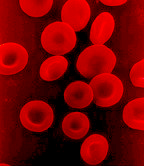 The mission of the Oncofertility Consortium is to advance and promote fertility preservation options for cancer patients. However, treatments for diseases besides cancer can also cause infertility. In particular, patients who undergo stem cell transplants can lose reproductive abilities from their treatments. A variety of diseases may be treated with stem cell transplants including several types of blood diseases, such as severe anemia and sickle cell disease, multiple sclerosis, and inherited or contracted immunodeficiency diseases.
The mission of the Oncofertility Consortium is to advance and promote fertility preservation options for cancer patients. However, treatments for diseases besides cancer can also cause infertility. In particular, patients who undergo stem cell transplants can lose reproductive abilities from their treatments. A variety of diseases may be treated with stem cell transplants including several types of blood diseases, such as severe anemia and sickle cell disease, multiple sclerosis, and inherited or contracted immunodeficiency diseases.
What do these diseases have in common? In all of these cases, the bone marrow of a patient is damaged. Bone marrow, which resides in the center of all bones, can produce new blood cells throughout life. In patients who are candidates for stem cell transplants, the bone marrow either doesn’t make enough blood cells or makes diseased cells.
During a stem cell transplant, diseased stem cells within the bone marrow are first destroyed. Like any other type of transplant, stem cells from a healthy individual are then infused into the patient. These new cells then start producing normal blood cells to replace the diseased ones.
In order to destroy damaged stem cells and prepare the body for transplant, patients must undergo a process called “conditioning.” During conditioning, patients receive chemotherapy and, possibly, total body radiation. This treatment also suppresses the immune system to decrease the risk of rejection. Like chemotherapy and radiation for cancer patients, this conditioning procedure also puts stem cell patients at very high risk for losing fertility.
Women who undergo chemotherapy and radiation have a greater than 80% risk of developing amenorrhea, or loss of regular periods, after treatment. Similarly, men are at high risk to lose sperm production for a prolonged period of time. As such, young patients should be counseled on fertility preservation options prior to treatment. Fertility preservation options are similar prior to both cancer and stem cell therapies. The national fertility hotline, FERTLINE, counsels patients and providers across the country and can guide stem cell patients to fertility preservation programs near them.

